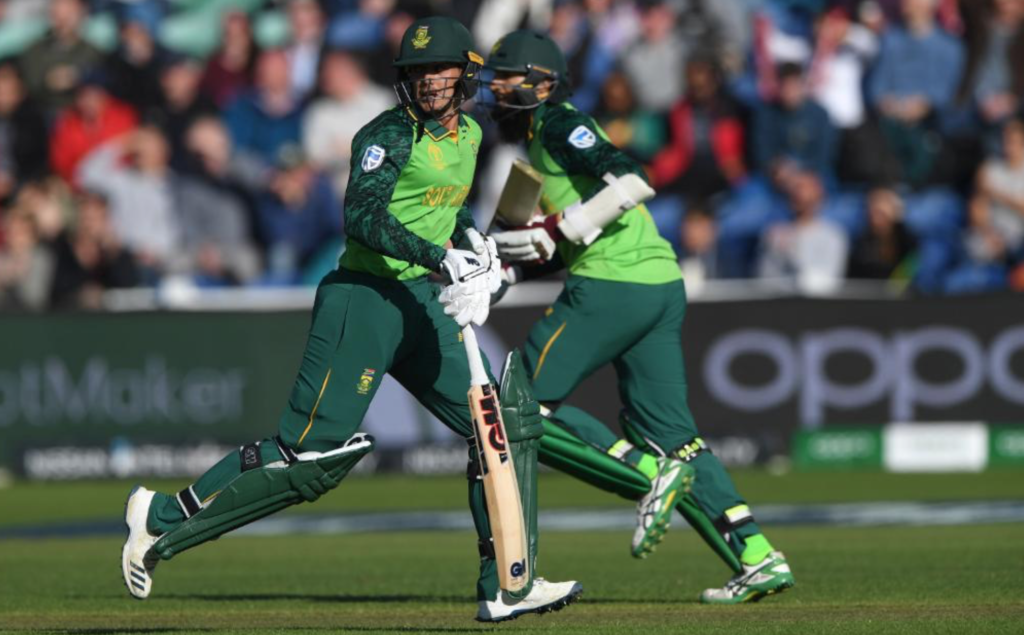Captain Faf du Plessis admitted the Proteas set a total of around ’20 runs short’ as they plunged to a four-wicket defeat by New Zealand on Wednesday.
It’s a result that effectively ended the Proteas’ ever-diminishing semi-final hopes.
Du Plessis’ charges may still have three games left in the pool stages, but their World Cup race is as good as run. Unfortunately it’s ended in heartbreak once again.
On the broadcast immediately following the conclusion of the clash at Edgbaston, Du Plessis admitted that the team’s total of 241 was simply not enough.
‘We were aiming at 260, we thought that would be par on this wicket; 270 would have been great. Our team chat was to aim at 260, 270, but we were 20 short. There was some good bowling, and we just could not get enough boundaries. A score of 260 would have been really good.’
In response, Kane Williamson scored 106 not out to guide New Zealand to victory, and Du Plessis conceded that the Kiwi captain had played the conditions perfectly.
‘I think individuals will look back at opportunities when they could have targeted a bowler to try take a fancy to on the day. Kane showed what to do, he found a guy or period to attack, while scoring a 100 that made it easier for those around him, while we were more stop-start.’
However, Du Plessis insisted that his side did not lack any effort in the field, despite some crucial missed opportunities towards the crucial latter stages.
‘I thought we threw ourselves around, fought for everything and tried so hard. There was some great work from our bowlers, and the energy was unbelievable. There was the odd soft moment, but the innings from Kane to take his team home was too good for us on the day.’
REPORT: New Zealand compound Proteas woes
Williamson undoubtedly played the quintessential captain’s knock, holding the innings together on a tricky surface.
Commenting after the match, a cool and calm Williamson paid credit to the ‘team’ effort and the 60-run cameo of Colin de Grandhomme.
‘Colin really stood out, and the impetus he added with the bat was special … for me, it was just important to try and get through the tough parts [of the game].
‘It [the ball] was standing up a bit off the surface, so it was just [key] to communicate with your partner and build partnerships … I just wanted to sit in and take the game deep …
‘I was just fortunate I could do that today. There were other vital contributions as well, and it was the sort of surface that provided a close game and a great spectacle.’







